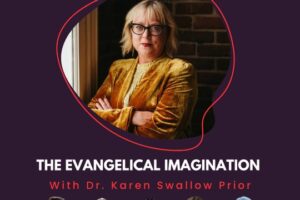Concluding our series on the intersection of faith and politics we turn to address fake news and the spread of misinformation. In this episode Dr. John Anthony Dunne and Dr. Chris Porter are joined by Rachel Wightman, who is Associate Director for Instruction and Outreach at the library at Concordia University in St. Paul, Minnesota. Over the course of our conversation we discuss what makes misinformation so problematic, what unique factors in our communication today have caused the surge in disinformation, how confirmation bias causes misinformation to be so appealing, why people of faith in particular should be concerned about not spreading misinformation, whether Christians are uniquely susceptible to misinformation, and how we should engage friends/family who are spreading false information online. Along the way, Rachel gives us some practical advice for recognizing fake news stories and for evaluating whether a bit of news is legitimate, including when “experts” appear to be spreading misinformation (e.g. the Fresno doctors who downplayed COVID, the doctors who announced that hydroxychloroquine cures COVID, the Plandemic documentary, etc). She also helps us recognize that bias in journalism does not equate with “Fake News.”
You can find this new episode on Spotify, Apple Podcasts, Google Podcasts, Overcast, Breaker, Anchor, or wherever you get your podcasts. Check it out, subscribe for weekly episodes every Wednesday, and please give us a rating and review!





Leave a Reply
Your email is safe with us.